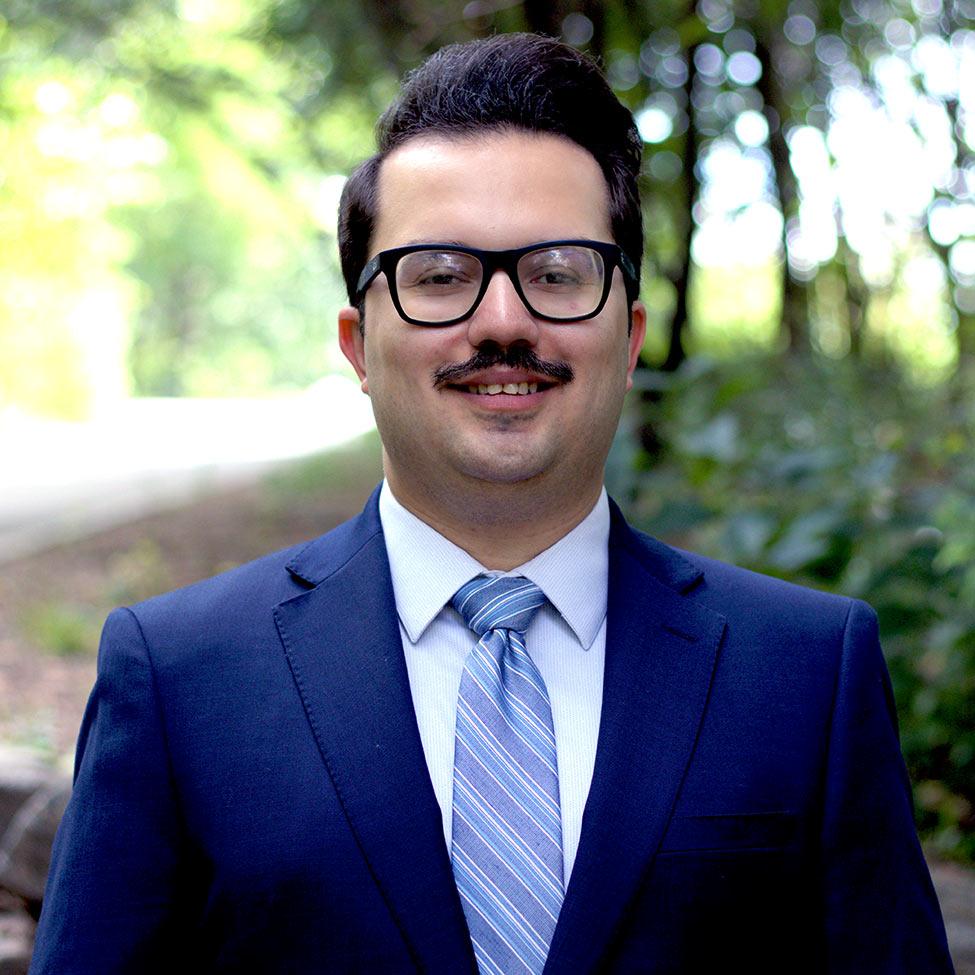
A Force in Forensics: Q+A with Joe Treviño ‘15

Joe Treviño
Class of 2015
Master of Science in Forensic Science
Joe Treviño is a criminalist with the New York City Police Department with a decade of experience in forensic intelligence, crime scene and medicolegal death investigation, and working in a law enforcement environment, in addition to pursuing a doctorate in forensic science at Oklahoma State University.
This past July, Treviño was selected from a competitive group of applicants as a 2023 National Institute of Justice (NIJ) Law Enforcement Advancing Data and Science (LEADS) Scholar, through which he will conduct research and apply evidence-based practices to criminal justice.
How is this meaningful to you and what do you hope to achieve as part of this program?
This program represents the culmination of my skills and experiences as well as a look into the future. My selection is the type of milestone I always thought people with more experience than I received, but someone saw the spark and potential in me. I am extremely excited to meet like-minded individuals and researchers with whom I can exchange ideas, form friendships, and collaborate.
How did you become interested in your work and get started in your career?
As a child, I would marathon-watch the early true crime shows with my mom (I was hooked on Forensic Files) and wanted to be a forensic chemist, so I went on to pursue a bachelor’s in forensic chemistry at Sam Houston State University in my home state of Texas. Upon graduation, I didn’t feel that I was ready to enter the job market, so I enrolled in the Master of Science in Forensic Science at Pace, returning home for my required internship as a death investigations intern at the Bexar County Medical Examiner’s Office in San Antonio. After receiving my master’s degree, I applied to laboratory and field investigations jobs, and started my career at the Garland Police Department, also in Texas, as a forensic investigator.
I was very much drawn to the flexibility of the Master of Science in Forensic Science program at Pace. The networking and career opportunities in the New York City area were also an attraction, and I felt that being in this location would be a contributing factor to my success.
What attracted you to pursue the master’s degree at Pace?
At the time, forensic science programs were going through a bit of a transformation and the big question was whether you chose a program that had specializations and tracks or one that was more customizable. I was very much drawn to the flexibility of the program at Pace. The networking and career opportunities in the New York City area were also an attraction, and I felt that being in this location would be a contributing factor to my success.
How were Dyson faculty or other members of the Pace community instrumental in your personal and/or professional journey?
Professor Peter Pizzola, PhD, was instrumental in establishing our sense of purpose and service to the public, which is hard to teach and easy to overlook, so I appreciate being guided through that process through his lectures and experiences. Professor Zhaohua Dai, PhD, the director of the forensic science program, was also an important mentor to me; he maintained contact after I graduated and invited me back as a guest lecturer, which began my path in academia and as an adjunct faculty in the program. I am tremendously grateful to both of them.
What challenges have you faced that you overcame and are proud of, and can share?
One of the first barriers I faced was financial. As a first-generation, Hispanic American student, my hope for an education was in scholarships and grants. Thanks to my mom’s unwavering support and relentless stewardship while I was in school, I received a full academic scholarship to any college of my choosing through the Gates Millennium Scholarship. College was an uneasy battle, with the hopes and dreams of my family and the burden of not being allowed to fail. I had stumbles, as any student would, but I recovered quickly.
What advice would you give to our students, as they navigate their college life?
Society already puts so much pressure on you to figure out your life. Don’t increase it by being hard on yourself. You are allowed to have no answers by the time you finish school. You are allowed to figure it out later. You are allowed to fail. You are allowed to struggle. You are allowed to be you. If you are concerned with not knowing something well enough or need help with a subject, reach out to your professors or advisors.